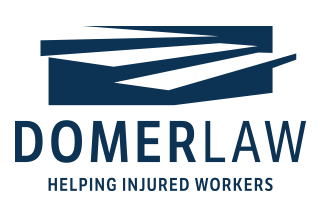A case recently decided by the Wisconsin Supreme Court could change the landscape of workers’ compensation cases throughout the state.
Background
The case – Adams v. Northland et. al – involved a worker injured while performing his duties as a snowplow driver for the Village of Fontana on Geneva Lake, a small town located in southeastern Wisconsin. The injury occurred after the worker’s snowplow struck the edge of a sidewalk, causing the plow to stop suddenly. The impact threw Mr. Adams into the roof of the cab of his plow. He received serious compression-related neck and back injuries. As a result of the accident, he has been permanently partially disabled.
Mr. Adams’ employer, along with their work comp insurer (the League of Wisconsin Municipalities Mutual Insurance Company), agreed that his injuries had been inflicted in the course of his duties as a plow driver, and covered his medical expenses plus nearly $150,000 in compensation for his permanent disability. The investigation into the accident found that the particular plow Mr. Adams had been driving had been improperly serviced by a third party, Northland Equipment Company. This case involves a suit brought by Mr. Adams against Northland independent of his workers’ compensation claim against the Village of Fontana.
The prevailing law
In most cases, injured workers are barred from bringing personal injury suits against their employer or co-worker based on the exclusive remedy provision of the workers’ compensation act. However, Wisconsin law (Wisconsin Statutes Section 102.29) allows claims against liable third parties concurrent to an ongoing workers’ compensation matter. That law, enacted in 1911, has allowed thousands of injured Wisconsin workers to bring negligence and injury lawsuits against other parties wholly or partially responsible for their workplace injuries.
An extreme departure
In this case, Northland and its insurer, Cincinnati Insurance Company, offered $200,000 to settle the personal injury third-party claim without proceeding to trial. His employer’s insurance company wanted him to accept the claim, but he refused, instead choosing to take the case to trial. The League of Wisconsin Municipalities Mutual Insurance Company made a motion to compel Adams to accept the settlement, something that the Rock County Circuit Court granted. Adams appealed the matter on the grounds that nothing in Section 102.29 or 100 years’ worth of cases brought under the authority of that law compels an injured worker to waive his constitutional right to a jury trial and simply accept a settlement just because his employer’s workers’ compensation insurance carrier wants him to.
Unfortunately for Adams – and for workers throughout Wisconsin – the Wisconsin Supreme Court affirmed the lower court’s motion to compel a settlement. The Court ruled that Adams had no independent right to a jury trial; rather, his cause of action was statutory, deriving from Section 102.29. Adams will now be expected to accept the settlement offered by Northland in spite of the fact that he wanted the case to move forward to a jury in the court system. In the future, this might mean that employees injured on the job could be forced to accept unfair settlements and could be deprived of their legal right to a trial on the merits of their case. With the decision being so new, however, there is yet no indication how far the ripples of this decision will go; only time will tell how this potentially game-changing court case will impact the rights of Wisconsin’s injured workers.


